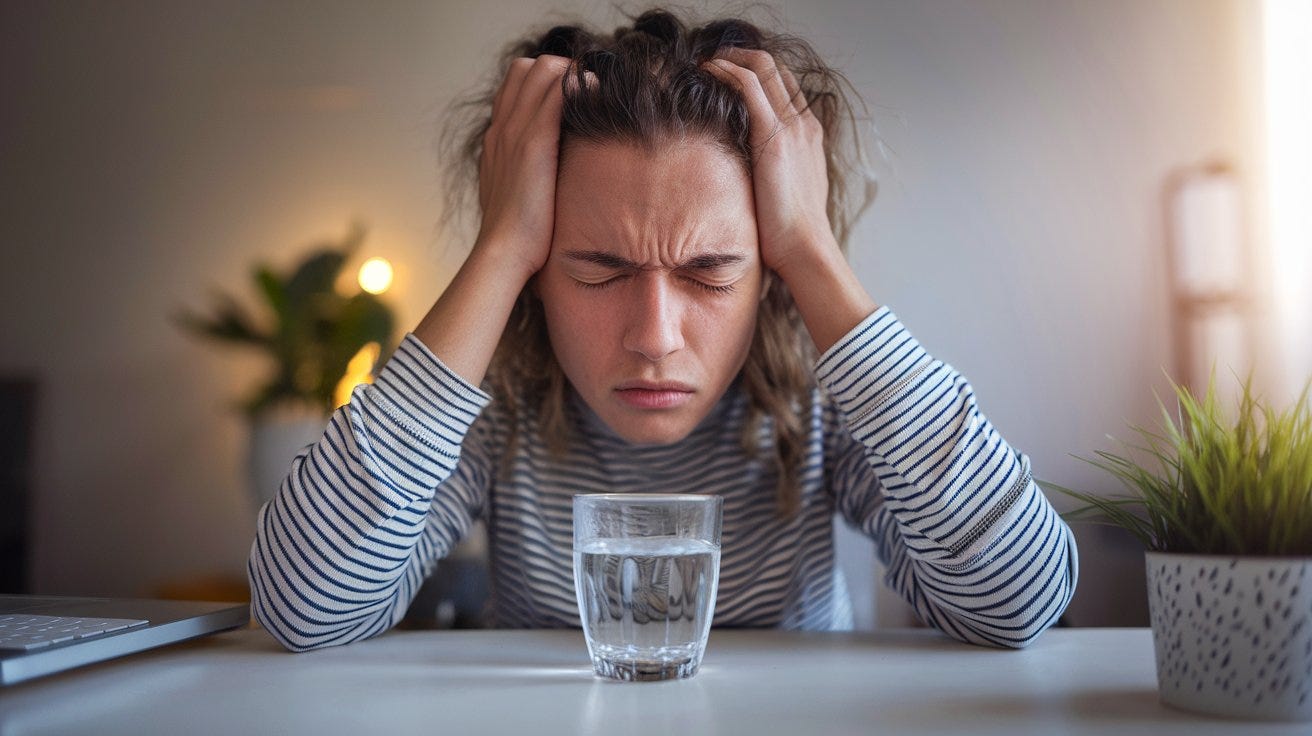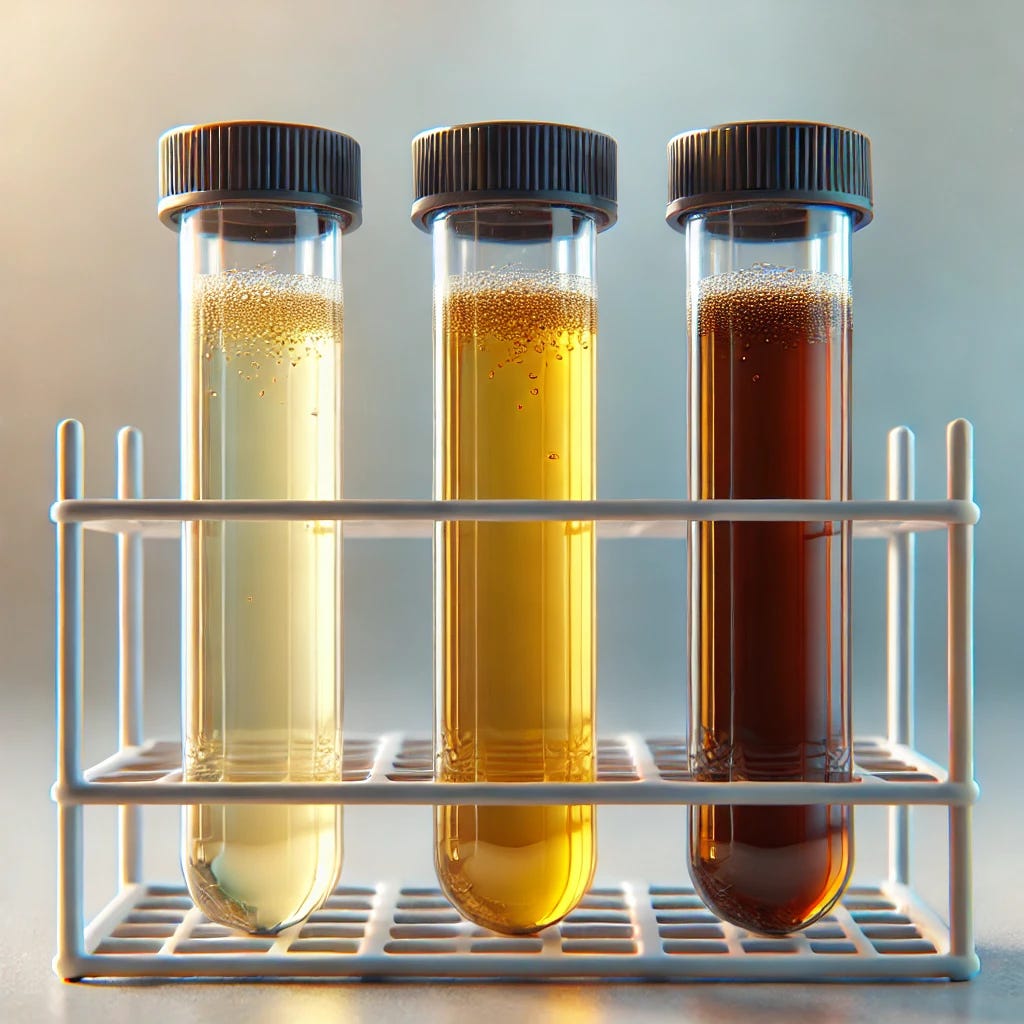Water and Productivity: The Impact of Mild Dehydration on Your Focus
By Geraldo Neto
Water does more than just stop thirst—it helps your brain work better and keeps you alert. Many people don’t know that even a little dehydration can make thinking slower, drain energy, and affect mood.
How Lack of Water Hurts Your Brain
Not drinking enough water might not seem like a big deal—until your body starts feeling the effects.
You Lose Focus and Reaction Time Drops. This makes simple tasks feel harder and increases mistakes.
Your brain Works Harder (and Slower)
Your memory and learning get worse.
Your mood changes. You feel more stressed, frustrated, and easily annoyed.
The worst part (s)?
A dehydration as low as 1-2% body mass loss is enough to affect your cognitive performance.
And By the time you feel thirsty, your brain is already slowing down.
What Does 2% Dehydration Look Like in Real Life?
A 70 kg (154 lb) adult → 2% loss = 1.4 liters (48 oz) of water
An 80 kg (176 lb) adult → 2% loss = 1.6 liters (54 oz) of water
A 90 kg (198 lb) adult → 2% loss = 1.8 liters (61 oz) of water
That’s about one to two large water bottles of lost fluids—easily happening through sweating, lack of drinking, or even mild heat exposure.
Simple Ways to Stay Hydrated
Drinking more water doesn’t have to be an inconvenience. A few small changes can make a big difference.
Keep water nearby. A water bottle at your desk makes drinking effortless.
Set reminders. If you forget to drink, use an app or alarm to stay on track.
How Much Water Do You Actually Need? (A Simple Guide)
Forget the old “eight glasses a day” rule—it’s not one-size-fits-all. How much water you need depends on your body size, daily activity, and even the weather.
Here’s a clearer way to understand your ideal daily water intake:
Daily Water Needs
💧 Men: About 3.7 liters (125 oz) per day = roughly 15 cups of water
💧 Women: About 2.7 liters (91 oz) per day = roughly 11 cups of water
🔹 What does this look like?
For men: This is about 7 standard water bottles (500 mL each)
For women: This is about 5-6 standard water bottles
What Counts Toward Your Daily Water Intake?
Not all drinks hydrate you the same way.
✅ Best choices:
Plain water (the best!)
Herbal teas
Water-rich foods (fruits, vegetables, soups)
🚫 Drinks that don’t count as much:
Coffee & tea (diuretics in large amounts, causing you to lose water)
Soda & sugary drinks (can dehydrate you due to high sugar and caffeine)
Alcohol (pulls water from your body and causes dehydration)
How Do You Know If You’re Drinking Enough?
The best way to check if you’re hydrated? Your “pee” color!
✔ Pale yellow = Well hydrated
✔ Dark yellow or amber = Drink more water
✔ Darker brown = You’re dehydrated and need water ASAP!
The Takeaway: More Water, Better Thinking
Not drinking enough water makes it harder to think, drains your energy, and can even affect your mood negatively.
But the solution is easy: Keep water close, drink before you feel thirsty, and make hydration a daily habit.
Next time you feel tired, unfocused, or just not right, ask yourself:
"Have I had enough water today?"
Your brain will feel the difference!
References
Patsalos, O., & Thoma, V. (2019). Water supplementation after dehydration improves judgment and decision-making performance. Psychological Research, 83(5), 1024–1035.
Merhej, A. R. (2019). Dehydration and cognition: An understated relation. Journal of the American College of Nutrition, 38(7), 646–657.
McCartney, D., Desbrow, B., & Irwin, C. (2017). The effect of fluid intake following dehydration on cognitive function: A systematic review and meta-analysis. Nutrients, 9(10), 1103.
Pross, N. (2017). Effects of dehydration on brain functioning: A life-span perspective. Annals of Nutrition and Metabolism, 70(Suppl. 1), 30–36.
Wittbrodt, M. T., & Millard-Stafford, M. (2018). Dehydration impairs cognitive performance: A meta-analysis. Medicine & Science in Sports & Exercise, 50(11), 2211–2221.
Zhang, N., Du, S. M., Zhang, J. F., & Ma, G. S. (2019). Effects of dehydration and rehydration on cognitive performance and mood. International Journal of Environmental Research and Public Health, 16(10), 1891.








